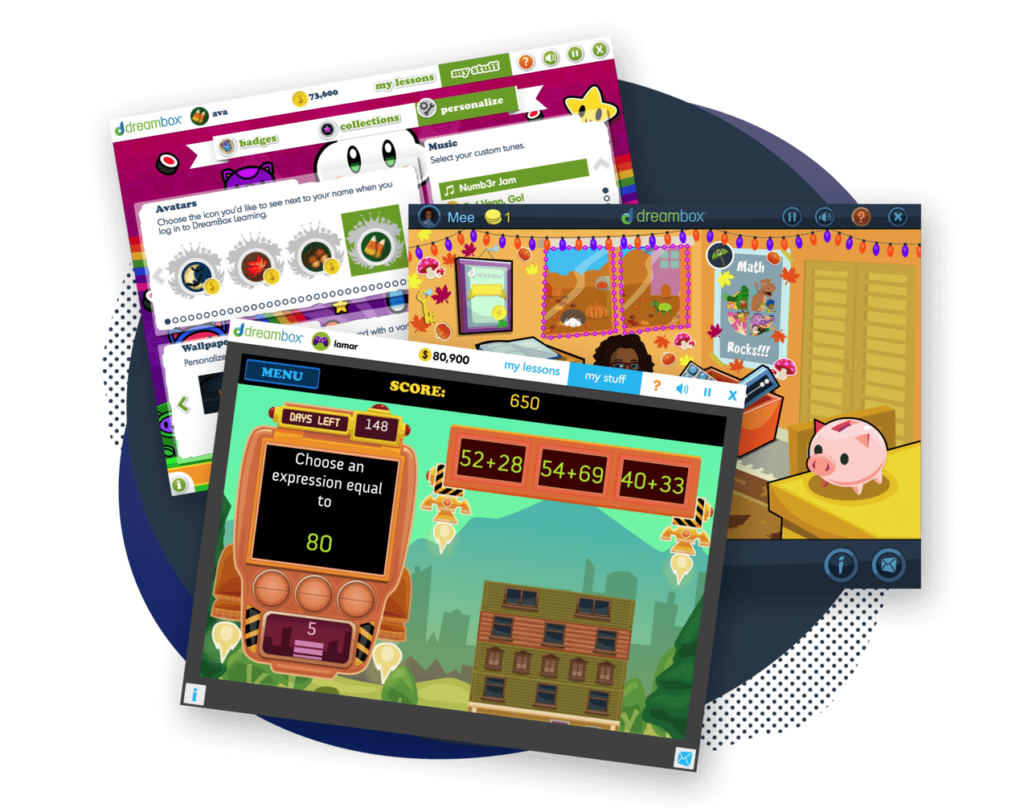First Day of 4th Grade
Discover essential tips and tricks for making the first day of 4th grade exciting for both you and your child.

Author
Tess Loucka
Published:
September 2025
Key takeaways
- • There are various techniques anyone can use to make the first day of 4th grade fun and exciting.
- • Feeling nervous is normal leading up to the first day of 4th grade, so work on building up your child’s confidence by reviewing their curriculum, involving them in back-to-school shopping, and talking through their feelings.
- • Social skills and independence are essential for success in the 4th grade.
So, the first day of 4th grade is coming up, and you probably have a lot of questions.
What should my child bring to school? How can my child prepare for the first day? Will I need to do anything when we arrive at the school? What if my child starts crying?
The good news is, most of the time, things aren’t as scary as they seem in our heads.
For most parents, after an entire summer of anticipation and stress about that first day back at school, the day comes and goes just like any other, leaving them wondering what all the fuss was about!
Whether you’re anxiously wringing your hands thinking about the first day back, or feel confident that everything will turn out fine, there are always ways to make the experience more enjoyable for both you and your child.
Let’s talk about how you can get your child feeling confident and excited about their first day of 4th grade.
How to Prepare for the First Day of 4th Grade
When people think of back-to-school season, the first thing that often comes to mind is school supplies. Having the right stuff is definitely important for students, but preparing for the first day of 4th grade doesn’t just mean stocking up on the right school supplies.
Back-to-school prep can also be internal!
To prepare your child to go back to school, you can:
- Buy the Right School Supplies – Schools almost always offer parents and students lists of the exact school supplies they need for the upcoming year. Check the school website for the supplies list or contact the school to have it emailed to you.
- Go Clothes Shopping – A great way to make your child excited about the new school year is to update their wardrobe. A new pair of sneakers, a fun T-shirt, or a cool jacket can make any 4th grader feel more confident and ready to jump back into the classroom.
- Review First Day Expectations – The main reason students might be nervous about the first day back is that they don’t know what to expect! So, go over your morning and drop-off routines, review good classroom behavior, and walk them through the details of what the first day might look like.
- Listen to Their Concerns – A student’s anxieties about the first day of 4th grade may not seem significant to you, but disregarding them can make those anxieties worse. Talk with your child about how they feel and offer them emotional support if needed.
Building Confidence from Day One
Nothing feels quite like walking into a classroom on the first day of school with a backpack full of supplies, a smile on your face, and, of course, a thoroughly planned outfit.
The first day of 4th grade should be exciting, not stressful.
Remember, building up your child’s confidence is a never-ending task. You can get them feeling confident for the first day of school, but without frequent reassurance from a parent or guardian, that confidence can easily slip away.
- Go Over the Curriculum – Students can feel overwhelmed in school when introduced to new, difficult topics. Briefly go over what your child is expected to learn in 4th grade before their first day of school to get them mentally prepared for the classroom.
- Make School Supplies Shopping Fun – Allow your child to get school supplies that will be fun for them to use. Get them a personalized pencil case, a fun backpack, scented pencils, or anything that will motivate them to learn.
- Work on Social Skills – Before the first day back, review the social skills your child will be expected to have, both in the classroom and outside of it. Ask questions like, How can you be friendly to your classmates? How can you show your teacher that you’re paying attention? How can you demonstrate patience?
- Curate Your Child’s Self-Image – At this age, children’s personalities are constantly developing. Talk to your child about who they want to be, how they want to be perceived, and how they can go about accomplishing that. Maybe it’s the way they dress or the way they talk about themselves or their interests to classmates.
By the 4th grade, most students will feel comfortable in the school building and may even know their teachers and classmates. So, while navigating the school and classrooms may feel natural to students by now, the social aspects of 4th grade may still be a challenge.
Table of contents
Get 4th grade math practice with DreamBox!
Turn math into playtime with DreamBox Math
DREAMBOX MATH
Get started for FREE today!

Helping Your Child Make Friends
Knowing that your child has a group of friends in school that they can talk to and rely on for help throughout the day is a sense of comfort for many parents. But what if your child doesn’t have friends?
Making friends doesn’t come naturally to everyone. If your child is struggling with the social aspects of 4th grade, give them some conversation starters!
Give a Compliment
By giving a simple compliment to a classmate, students can easily start conversations about things they both enjoy or have in common.
“I love your shoes. Where’d you get them?”
“Your handwriting is so neat!”
“I like the way you decorated your cubby.”
Ask a Question
Asking a question is also a great way to start a conversation in school.
“What did you get for question six?”
“Do you remember how to solve this problem?”
“Did you like the reading we had to do last night?”
You can help your child make strong friendships by setting up playdates, taking them to fun kid-friendly activities, and signing them up for afterschool programs.
Lastly, remember positive reinforcement. By boosting their confidence in themselves, children are more likely to speak to classmates and make friends.
Routines and Procedures to Practice at Home
The morning and night routines are essential to a successful year in 4th grade. By now, you and your child will have already gone through a few years of school routines and may be settled into your habits.
However, reflect on those habits and consider improvements. Talk about your routines with your child and work together to plan the perfect morning and evening schedules that work for both of you.
Mornings
To make the mornings less stressful, set out your child’s clothes the night before. Figure out what’s going to be for breakfast beforehand. Also, have their backpack packed and ready to go.
Involve your child in this process too, or better yet, have them do these tasks independently!
Evenings
After school, set a time for homework and reading assignments. That way, your child will know exactly what to expect once they get home. Instead of asking to watch TV or play a game, you can remind them that it’s homework time. They can do the fun stuff later.
At night, set an early bedtime. A 4th grader should be in bed by around 9 pm.
Fun Activities and Crafts to Get Kids Excited
At this age, children greatly benefit from hands-on activities. They’re also full of creativity!
So, set up fun activities or crafts to get your kids excited for the first day of 4th grade.
Give them stickers, colored markers, or other art supplies to decorate their folders and notebooks. Personalized school supplies can make school more exciting for kids and can be a great conversation starter with their peers.
You can also help your child make decorations for their locker or cubby at school by cutting out fun shapes in construction paper, drawing pictures, or making collages with family photos.
Another idea is to make a back-to-school vision board. Cut out inspiring photos from magazines and newspapers, or print them out from online, to create a vision of what your child envisions for their life in 4th grade.
For more tips, techniques, and advice on life and learning in 4th grade, visit the online Dreambox math program today!
FAQs about the first day of 4th grade
Check the supplies list provided by your child’s teacher or school. Additionally, pack water, healthy snacks, and lunch. For anxious children, a comfort item like a stuffed animal can also be essential.
Talk through your child’s feelings, explain what is expected from them in the classroom and at home, and listen to their concerns with an open mind. Offering emotional support throughout the school year can boost your child’s confidence.
Practice conversation starters, classroom behavior, and social skills with your child to make them feel confident making new friends. Motivate them to be themselves and put their best foot forward every day.
Take at home math practice to the next level
Empowering parents and educators to make math practice more impactful. Plus, your kids will love it.


About the Author
Tess Loucka
Tess Loucka discovered her passion for writing in high school and has not stopped writing since. Combined with her love of numbers, she became a math and English tutor, focusing on middle- and high-school-level topics. Since graduating from Hunter College, her goal has been to use her writing to spread knowledge and the joy of learning to readers of all ages.